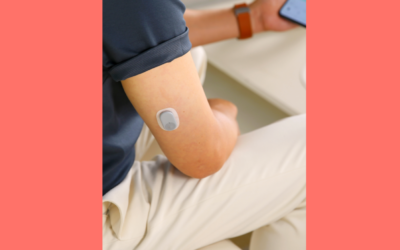By Steve Marriott on December 10, 2020
Healthcare technology – or HealthTech – is the digitisation of healthcare to provide patients with easier and more accessible care with improved health outcomes. We have an established HealthTech industry. Entrepreneurs have been creating successful digital health solutions for many years. But, it is a challenge to get the NHS to accept healthcare innovation at scale.
A new report published by Boehringer Ingelheim details the barriers that innovators face. It goes on to recommend how the system must change and embrace the digital opportunity; to grasp the once in a generation opportunity that lies before us today.
The COVID hangover
Before COVID, pressures on the NHS were already building. With more of us living for longer, co-morbidities are increasing. That means more consultations, more prescriptions and more hospital visits. There is too much demand from patients, and a shortage of GPs is making the situation worse.
And then COVID hit, hard. Making sure the NHS would cope with a surge in demand became the top priority:
- Routine healthcare had to take a back seat while the NHS hit the first wave of coronavirus head-on.
- Hospitals discharged convalescing patients early to release beds for patients with coronavirus.
- Primary care teams reacted and adapted with haste. GPs began to speak with patients on the phone or by video calls to reduce face to face contact.
Right now, the second wave is levelling off, and we are expecting a further challenge for the NHS. Fewer people have been talking to their doctors, and new diagnoses of chronic and severe illnesses are lower than before. When the pandemic is over, long-term conditions will prevail and many of these patients will need to see their GP and receive treatment. For some people with worsening conditions, delaying the diagnoses could have profound implications.
This temporary drop in diagnoses will create extra long-term pressure on the NHS. Can healthcare innovation ease this pressure? We think it can.
What is healthcare innovation?
It is easy to associate innovation with complexity, but at Spirit, the opposite is true. It is about taking a step back and looking at problems in a different way and then coming up with a new product or service that makes health easy.
Today, these new solutions often involve digital technology. Digitising healthcare creates opportunities to:
- Make it easier for patients to access healthcare services, clinicians and carers
- Improve service efficiency by saving time and reducing the cost of providing healthcare
- Improve health outcomes
Make health easy
We are already using digital health to improve access to services. One in five people interacts with their GP practice online because it’s easy, convenient and available 24/71.
Another is using phone apps to track long-term conditions. Wearable technology makes it easy to log data in the background while you get on with everyday life. The associated apps tell you when the data suggests something might not be quite right. You can then investigate, learn and seek medical help when you need to. The tech is empowering you to self-manage your chronic condition.
It’s not all for patients, HealthTech is helping clinicians too. Electronic patient records are not new, but they are getting more sophisticated. Giving healthcare professionals a single real-time view of a patient’s medical data from various systems is a huge benefit. It helps them to make appropriate clinical decisions straight away with confidence, even if they have not seen the patient before.
Saving time and reducing costs
Patients don’t always know who to turn to for medical help. It’s easy for them to see their GP or go to A&E, but often other healthcare professionals may be more appropriate. Digital solutions can guide a patient and help them to know who they should contact.

Similar technologies are integral parts of remote monitoring solutions, such as Spirit Digital’s CliniTouch Vie. Combining biometric data with information about how patients are feeling enables caseload prioritisation. Clinicians can know when to see the right patients at the right time. This triage isn’t just about being able to react with urgency. Knowing when patients don’t need urgent care can help to reduce the number of home visits and emergency consultations, releasing clinicians’ time for those patients who need it. Remote monitoring allows patients to learn how to self-manage their health too. This empowerment can reduce how often they need to speak with their doctor.
Healthcare innovation can extend beyond digital health. Developing new lower-cost alternatives to existing products and services can save the NHS millions of pounds.
Improving health outcomes
The most rewarding aspect of healthcare transformation is improving people’s health. Established digital solutions are available that help clinicians to make full use of their expertise.
Continuing the remote monitoring example mentioned earlier, clinicians can see their patients’ health risks in real-time. They can detect when a patient’s health is worsening and intervene sooner to avoid further deterioration.
The sooner we diagnose many long-term health conditions, the better the outcome will be for the patient. Beyond remote monitoring, AI, machine learning and population health enable proactive and predictive care at scale. Health services can case-find and identify patients at risk of developing long-term conditions and intervene before they have symptoms.
Healthcare innovation in Britain
There is a vibrant HealthTech industry in the UK, as noted by Secretary of State for Health, Matt Hancock:
“Britain has the chance to lead the world on HealthTech. We already have some of the world’s best HealthTech companies…and we have the world’s biggest health institution. I want to use all of this to build an ecosystem of the best HealthTech in the world.”2
Our entrepreneurs are releasing new digital solutions at pace, utilising artificial intelligence, machine learning and wearable technologies. If healthcare innovation is so prolific, what is the problem?
Harnessing technology and building brilliant digital health products is only part of the solution. Digitising any analogue process or service is a cultural transition. Success depends upon encouraging people to take a journey of change. This shift is especially evident in healthcare settings where the stakeholders include:
- Policymakers
- Service providers
- IT and tech teams
- Healthcare professionals
- Patients and their carers
Suppliers can deploy digital health systems quickly. In the early stage of the pandemic, there was an accelerated acceptance of digital technology. Trusts were ordering and deploying systems in weeks. Before COVID, it would have taken years. Rapid deployments are possible, but is the health and social care system agile and responsive enough to allow this pace in more normal times?
An Innovator’s Guide to the NHS
Boehringer Ingelheim’s new publication, An Innovator’s Guide to the NHS; Navigating the barriers to digital health, explores the challenges facing innovators. Spirit’s Nadine Miles and Simon Applebaum were among the report’s consultees.
Simon describes the report as a wake-up call for everyone involved in healthcare innovation:
“This Innovator’s Guide addresses the once in a generation opportunity to make change. Policymakers, clinical leaders, front line staff and life sciences organisations must grasp the digital opportunity; through collaboration and empowerment, we can begin business better than usual today.”
The barriers to healthcare innovation within the Guide include digital policy. Having a poor understanding of plans stops innovators from working in harmony with the NHS. They are likely to overlook obstacles to successful adoption, such as:
- The digital literacy of the workforce
- The changing purpose of healthcare innovation
- The importance of working with the life science industry
- Knowing how to prove value to access NHS funding
- Regulation. Innovators must find out if their technologies classify as medical devices and follow the process to obtain CE marks. They also need to understand how Brexit impacts medical device regulation. Healthcare innovators must comply with laws covering the use of personal data and information governance within the healthcare context.
- Accessing NHS markets. Instead of working in isolation, many partners can guide innovators and help them to get their products noticed and accepted by the NHS. These include HealthTech Connect, the Accelerated Access Collaborative and the AHSN Network.
- Funding. Without having appropriate evidence and being able to demonstrate value, innovators will struggle to find national or local funding for their products.
The opportunity for healthcare innovation
We have to find new ways to make healthcare services more effective and efficient. Simon Applebaum says we have an opportunity to transform digital innovation:
“Until March of this year, digital innovation was a consumer expectation that was largely unmet within UK healthcare. Yet, the last few months have changed innovation at a very local level, rapidly. 2020 has become the year when local health and care organisations have used technology to help existing services and pathways work better and more efficiently. This represents a once in a generation opportunity for change. Policymakers, clinical leaders, front line staff and life sciences organisations must grasp the digital opportunity; through collaboration and empowerment, we can begin business better than usual today.”
Conclusion
The seeds of digital health were sown more than thirty years ago. Today, there is little doubt that healthcare innovation can drive transformation. It can make healthcare more efficient, make access easier for patients and improve health outcomes. HealthTech can ease the current situation and should reduce the burden as we move forward to the next crisis – the COVID hangover that will hit the NHS soon. But it is too hard for innovators to get their products and services accepted and for the health service to realise the benefits. This must change.
You can read the full Boehringer Ingelheim publication here.
References:
1 NHS England GP Patient Survey 2020 https://www.england.nhs.uk/statistics/2020/07/09/gp-patient-survey-2020/
2 https://www.gov.uk/government/speeches/my-vision-for-a-more-tech-driven-nhs
Ref:GRP3568DEC20


